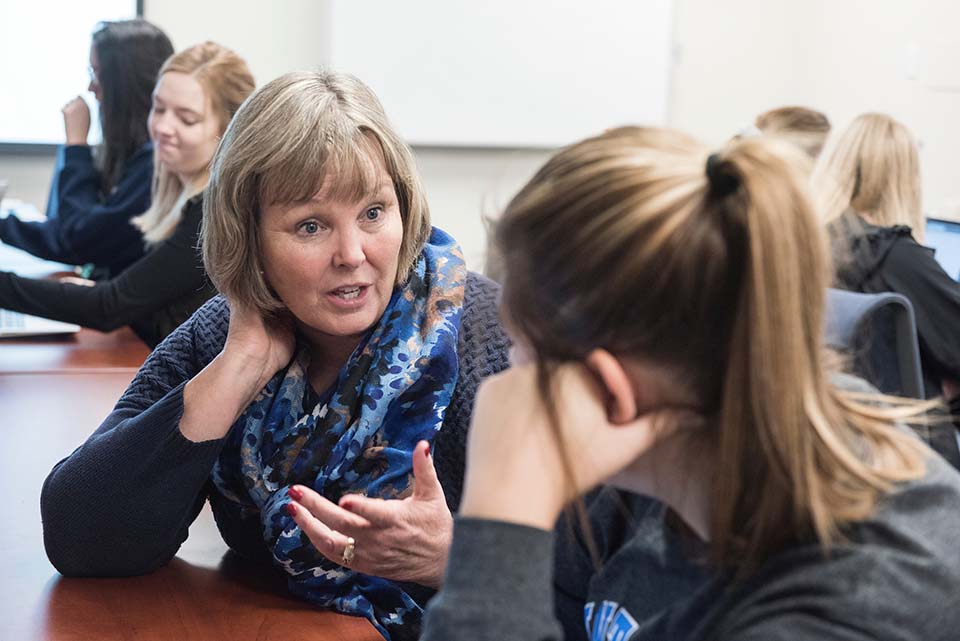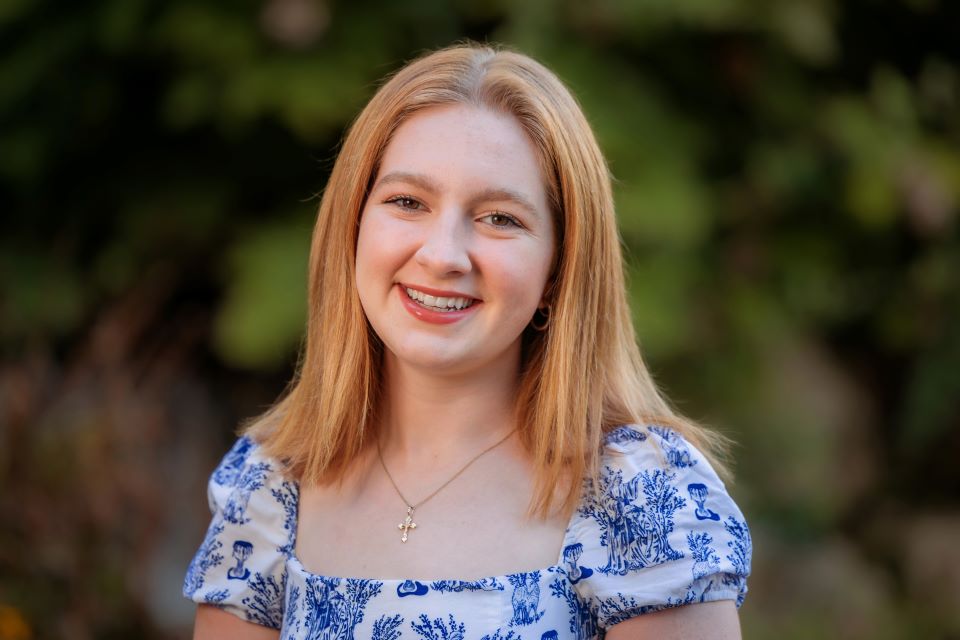SLU Researchers Invite Living Kidney Donors and Recipients to Join NIH-funded Study to Overcome Disparities in Kidney Disease, Transplantation
ST. LOUIS — As part of an ongoing study, Saint Louis University School of Medicine researchers will enroll living kidney donors and conduct detailed follow-ups of transplant recipients to assess how the use of genetic testing may mitigate racial disparities in the health outcomes of people with chronic kidney disease, including organ donors and transplant recipients.
SLU researcher and professor of medicine Krista Lentine, M.D., Ph.D., is part of a network working to shed light on kidney disease, an area where racially based health disparities are stark, and more research is needed.

Saint Louis University and SSM Health Saint Louis University Hospital team members supporting APOL1-related research projects. From left, Shannon Smith, Krista Lentine, M.D., Ph.D., Myron Minner, Jennifer Davis, Yasar Caliskan, M.D., Paris Cooper, and Elizabeth Bacar. Photo by Dave Berliner, SSM Health.
The National Institutes of Health (NIH) recently awarded Lentine and her team an additional five years of funding for APOLLO, one of the most extensive and longest-running national studies conducted in the field of transplantation.
The NIH-supported APOLLO study is coordinated by 13 lead centers in the U.S., including SSM Health Saint Louis University Hospital Transplant Center, to engage transplant programs and patients across the country. Over the last five years, the national APOLLO study has enrolled 5,000 deceased donor kidneys, 2,700 recipients of those kidneys, over 250 living kidney donors, and over 230 of their recipients.
Despite the critical need for new information to understand kidney disease risk and find targeted solutions, Lentine says there are disparities in research participation in the African American community, especially in the context of organ donation. As a researcher aiming to change these trends, Lentine encourages African Americans to consider participating in research to help improve kidney treatment transplant outcomes.
Lentine is associate division director of nephrology at SLU and medical director of living donation at SSM Health Saint Louis University Hospital, where she also serves as the Mid-America Transplant/Jane A. Beckman endowed chair and vice chair of internal medicine research. A top researcher in kidney disease and transplantation internationally, Lentine’s scholarship is among the most cited research in the field of kidney transplantation.
The results of APOLLO will inform how risk kidney variants in the apolipoprotein L1 (APOL1) gene – present in some individuals of African ancestry – impact the acceptance of organs from deceased donors, the survival of transplanted organs, and the health of living donors.
“That information could change the way doctors consider race when they examine risk factors of an organ donor and transplant recipient, including the scoring system used to grade organ quality in national allocation policy and acceptance of living donors,” said Lentine, one of the co-principal investigators of APOLLO and chair of the APOLLO Dissemination Working Group.
A Genetic Clue
Kidney risk variants in a gene called APOL1 are present only in persons of African ancestry. Inheriting two risk variants – one from each parent – is associated with an increased risk of kidney failure, and this high-risk genotype is present in approximately 15% of African Americans.
“African ancestry is associated with an increased risk of kidney failure in the general population overall and following living donation,” Lentine said. “Moreover, kidney transplants from deceased donors with African ancestry have an increased risk of graft failure compared to organs from non-African ancestral donors.”
Lentine says recent breakthroughs in medical genetics have revealed that a portion of kidney failure affecting African Americans is mediated by genes – and those genetic variants, not race – underlie increased risk. This story is complex in that not all persons with APOL1 high-risk genotypes develop kidney problems. Rather, additional genetic, environmental, biological, and social determinants of health interact with these genetic variants to cause kidney damage.
Therefore, categorizing race as a biological construct rather than a social one contributes to health care disparities in kidney treatment and transplants, she said.
Additional Opportunities in Chronic Kidney Disease Research
Researchers are also reassessing how APOL1 genotyping might help patients with chronic kidney disease understand and manage their kidney risk. In partnership with Mid-America Transplant Foundation, Lentine and her team are conducting a pilot study offering APOL1 genotyping to African American patients and assessing attitudes about genetic testing and kidney care. Lentine said researchers have enrolled more than 265 patients in this ongoing local project. The project is open to household members of enrolled SSM Health Saint Louis University Hospital patients and the broader community.
Scientists are also actively seeking to understand how APOL1 risk variants lead to kidney damage and develop novel treatments to stop the damage, including a phase 2/3 clinical trial with recruitment at Saint Louis University.
To learn more about these studies, call 314-977-2687 or email krista.lentine@health.slu.edu.
Latest Newslink
- Kathryn Mitchell Pierce, Ph.D.: 1955-2025Kathryn Mitchell Pierce, Ph.D., associate professor of educational studies, died Wednesday, Dec. 10, 2025. She was 70 years old. Pierce joined Saint Louis University in 2015 as an assistant professor in the School of Education. Initially a literacy specialist in the undergraduate program, she eventually taught and mentored across all levels at the School of Education. She became an associate professor in 2022.
- Saint Louis University Student Speaks About Leadership and Disability at Ignatian Family Teach-In for JusticeSaint Louis University senior Grace LoPiccolo shared her personal leadership journey at the 2025 Ignatian Family Teach-In for Justice. The event, held annually in Washington, D.C., is the nation’s largest Catholic social justice advocacy day.
- SLU Research Shows Surge in Alcohol-Related Liver Disease Driving ‘Deaths of Despair’Researchers at Saint Louis University School of Medicine say deaths from alcohol-related liver disease have surged in recent years, and the increase is hitting people without a college degree the hardest. While nearly every demographic group is seeing higher death rates—including those with college degrees—the gap between economically disadvantaged groups and more affluent ones is growing, according to new research.
- Saint Louis University Joins Multi-Disciplinary Research Team to Enhance Stress Resilience in SorghumSaint Louis University is part of a multi-disciplinary team, led by the Donald Danforth Plant Science Center, to deepen the understanding of sorghum, a versatile bioenergy crop, and its response to environmental challenges.The U.S. Department of Energy (DOE) Biological and Environmental Research (BER) program supports the three-year $2.5 million project for Genomics-Enabled Understanding and Advancing Knowledge on Plant Gene Function. Saint Louis University will receive $437,039 for its portion of the study.
- SLU Graduates Celebrated at Midyear CommencementSaint Louis University celebrated its Midyear Commencement on Saturday, Dec. 13, inside Chaifetz Arena. More than 1,900 guests watched as 600-plus SLU students walked across the stage and left as graduates.
- Why Do Raccoons Cross the Road? SLU, St. Louis Zoo Research Shows They Don'tA new study led by researchers from Saint Louis University, the Saint Louis Zoo, and partner organizations set out to understand how raccoons use space in one of the nation's largest urban parks.













